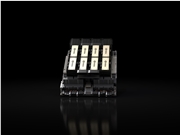Elon Musk, the founder of Tesla, recently publicly responded to rumors about the dissolution of the Dojo supercomputer team, clearly stating that the company will terminate its strategy of developing two different architectural AI chips simultaneously. He pointed out, "It is inefficient to spread resources to develop Dojo and the next generation of AI chips in parallel. Tesla will focus its efforts on subsequent core chips such as AI5 and AI6."

According to insiders, this strategic adjustment involves significant personnel changes. Peter Bannon, the head of the Dojo project, will leave the company soon, and his team members will be transferred to positions related to data centers and computing clusters. Since its launch in 2019, the Dojo project has been seen by Musk as a key infrastructure for achieving full self-driving (FSD). Its unique distributed computing architecture had once been highly anticipated.
Musk specifically emphasized the performance advantages of the new generation of chips: "The AI5 series will demonstrate excellent capabilities in inference tasks, and their training performance can also reach the top level of the industry." This statement contrasts sharply with the previous positioning of Dojo as "processing massive video data," highlighting a fundamental shift in Tesla's technology roadmap.
Industry analysts point out that this adjustment reflects Tesla's new thinking on AI computing power layout. Compared to the specialized architecture of Dojo, concentrating resources to optimize general-purpose AI chips better aligns with current technological trends.










